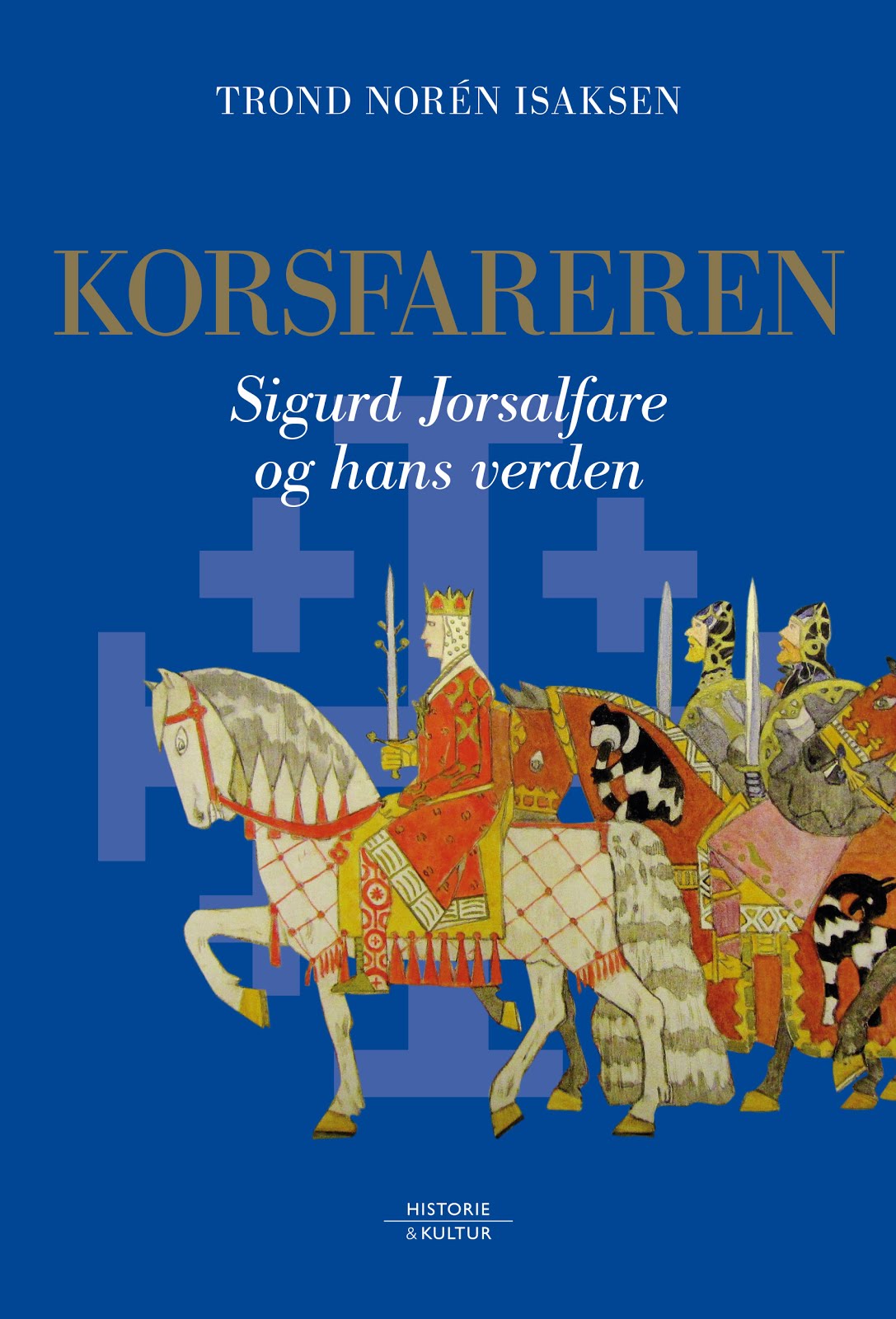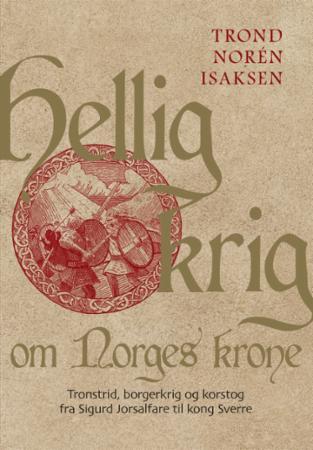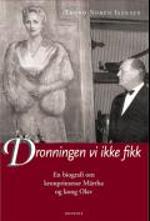Saturday 9 October 2010
A personal message
Because of my dear grandmother’s death earlier today, following a horrendous succession of illnesses over the past 21 months, this blog will not be updated in a while.
Friday 8 October 2010
My latest article: Why the Nobel Peace Prize is Norwegian
Alfred Nobel wrote in his will that the Peace Prize should be awarded by a committee appointed by the Norwegian Parliament, but offered no reasons why. Many differing explanations have been suggested over the years. While researching a coming article on Prince Carl of Sweden’s many nominations to the Peace Prize I may have found an answer to that question, which I publish in an article in Dagsavisen today (external link).
1936 was one of the three occasions on which Prince Carl was seriously considered for the Nobel Peace Prize. Seventeen of the childless Alfred Nobel’s closest relatives – all descendants of his siblings or married to descendants of his siblings – wrote to the Nobel Committee in support of the Prince’s candidature.
In their letters the Nobels wrote that their uncle had longed to “do away with misunderstandings between nations, first and foremost here in the Nordic region, where there, at the time Alfred Nobel made his will, to his grief was a strained relationship between Norway and Sweden”.
“He entertained a personal, strong sympathy for the Norwegian people”, they went on to write, “and through putting the award of the peace prize into its hands he wanted to bring about a good relationship to the Swedish fraternal people”. They added: “In no more beautiful way could he advocate his idea ‘reconciliation between the fraternal peoples’”.
Alfred Nobel drew up his will on 27 November 1895, towards the end of a year which had seen one of the severest crises of the Swedish-Norwegian union of crowns. He died a year later and thus did not live to see the union being dissolved in 1905.
Labels:
1905,
Bernadotte,
history,
Nobel Prize,
Norway,
royalty,
Sweden
Thursday 7 October 2010
My latest article: A broken royal engagement
When Princess Madeleine and Jonas Bergström called off their engagement in April it was the first time a Scandinavian royal engagement was broken off since Crown Prince Frederik (IX) of Denmark and Princess Olga of Greece ended their betrothal in 1922.
In the latest issue of Royalty Digest Quarterly (no 3-2010), which has just arrived, I look at the story of that engagement. There has been much speculation about what were the reasons for that rupture, but from the diaries of Princess Olga and King Christian X it seems the real reason was that the proposal happened too spontaneously and that Crown Prince Frederik soon realised his mistake.
The official reason, that Princess Olga was unwilling to convert to Lutheranism, was certainly not true as the diary of Christian X shows that he and the Danish government had agreed that it would not be necessary for the Princess to convert as long as her children were raised at Lutherans.
In the same magazine I also have a review article of the late Stig Hadenius’s biography of Gustaf V’s influential consort, Drottning Victoria av Sverige – Om kärlek, plikt och politik. (Curiously, the editor seems to have mixed up my name with the author’s, so that the byline reads “Stig Norén Isaksen”).
In the latest issue of Royalty Digest Quarterly (no 3-2010), which has just arrived, I look at the story of that engagement. There has been much speculation about what were the reasons for that rupture, but from the diaries of Princess Olga and King Christian X it seems the real reason was that the proposal happened too spontaneously and that Crown Prince Frederik soon realised his mistake.
The official reason, that Princess Olga was unwilling to convert to Lutheranism, was certainly not true as the diary of Christian X shows that he and the Danish government had agreed that it would not be necessary for the Princess to convert as long as her children were raised at Lutherans.
In the same magazine I also have a review article of the late Stig Hadenius’s biography of Gustaf V’s influential consort, Drottning Victoria av Sverige – Om kärlek, plikt och politik. (Curiously, the editor seems to have mixed up my name with the author’s, so that the byline reads “Stig Norén Isaksen”).
Mario Vargas Llosa awarded Nobel Prize
Peter Englund, the Permanent Secretary of the Swedish Academy, today announced that the Nobel Prize in literature for 2010 has been awarded to the Peruvian author Mario Vargas Llosa “for his cartography of structures of power and his trenchant images of the individual’s resistance, revolt, and defeat”.
This comes as the last but one of the many Nobel Prize announcements this week. The last and most prestigious of them will be announced tomorrow at 11 a.m., when Thorbjørn Jagland, leader of the Norwegian Nobel Committee will let the world know who will receive the Peace Prize for 2010.
This comes as the last but one of the many Nobel Prize announcements this week. The last and most prestigious of them will be announced tomorrow at 11 a.m., when Thorbjørn Jagland, leader of the Norwegian Nobel Committee will let the world know who will receive the Peace Prize for 2010.
Wednesday 6 October 2010
New books: The Papacy through 2000 years
 Pope Benedict XVI’s controversial recent visit to Britain and his attempt at rewriting history by claiming that World War II was in reality a war against atheism provided a good opportunity to reflect on the near-total loss of moral authority which the Vatican has suffered since Benedict took over from his equally conservative, but more charismatic predecessor five years ago. This is, however, only the latest development in the two thousand years of papal history and, when one considers what the Papacy gone been through during those millennia, it feels almost inevitable that it will come through its latest moral crisis as well.
Pope Benedict XVI’s controversial recent visit to Britain and his attempt at rewriting history by claiming that World War II was in reality a war against atheism provided a good opportunity to reflect on the near-total loss of moral authority which the Vatican has suffered since Benedict took over from his equally conservative, but more charismatic predecessor five years ago. This is, however, only the latest development in the two thousand years of papal history and, when one considers what the Papacy gone been through during those millennia, it feels almost inevitable that it will come through its latest moral crisis as well. No institution has played such a great role over such a long time on the stage of European history as the Papacy. Yet its influence has been almost constantly changing throughout its long and complicated history, which has seen schism resulting in as many as four rival popes at the same time and reigns whose lengths have ranged between twelve days and 32 years.
It is thus a daunting task Roger Collins has taken upon himself in attempting to tell the history of the Papacy’s 2000 years in a single volume of some 500 pages. Yet, in Keepers of the Keys of Heaven: A History of the Papacy, which was published last year and is now available in paperback, he must be said to have succeeded.
The book is lively and engagingly written and the centuries fly past as one reads. At such a pace it is almost unavoidable that the reader might occasionally find it a bit difficult to keep all the popes, antipopes, emperors and kings apart and sometimes the author himself makes mistakes in names, titles or dates.
It is also a given that the author cannot delve particularly deeply into it all, so that even the Reformation is only accorded a few paragraphs, but I cannot see how this could have been done differently without making the book swell into one of those tomes of 1000 pages or several volumes.
Collins’s book virtually ends in 1978 as he considers it too early to evaluate the impact of John Paul II’s long papacy and therefore restricts himself to suggesting what might be considered the strongest and weakest aspects of his reign. And the paedophilia scandals which have engulfed the Papacy recently were mostly revealed after the book went to print, thus making it impossible for the author to dwell upon the contrasts in the Papacy’s moral standing on the world scene during the reigns of John Paul II and Benedict XVI.
As the book is mostly narrative rather than analytical I do miss a final chapter where the author could have summed up and given us his thoughts on the ever-changing role and influence of the Papacy throughout its existence. Nevertheless it works very well as an introduction to or a survey of the history of this longest-lasting of the central institutions of European history.
Saturday 2 October 2010
State Opening of Parliament today
The King, Queen and Crown Prince as usually attended the State Opening - before 1905 other members of the royal family also attended, but since then it has been a tradition that only the King, Queen and Crown Prince are present.
Photos from the State Opening can be found at the Parliament’s Flickr account (external link), where it is interesting to note that the King is consequently referred to as “H. M. King Olav V”, despite the fact that said king has of course been dead for very nearly twenty years.
The Speech from the Throne, which sets out the government’s agenda for the coming year, can be read in full at the government’s website (external link).
Labels:
ceremonies,
Norway,
parliament,
politics,
royalty
Subscribe to:
Posts (Atom)




